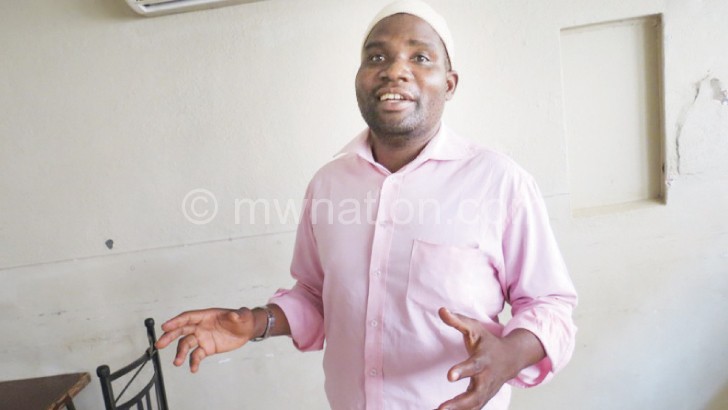Fighting HIV and Aids the Islamic way
Growing up, Aisha heard so little about the Acquired Immune Deficiency Syndrome (Aids) as elders around her were reluctant to tell her and other children anything to do with sex. It was considered an abomination or a taboo.
But by the time she clocked 15, she had acquired a lot of information on the subject, including one that asked everyone to go for HIV testing and counselling (HTC) as the only way of knowing one’s status.
She went for testing and realised that she was living with the virus. She was shocked, wondering how she could have acquired it. It was the counsellor who opened up her mind, telling her there were many ways one could get the virus.
Looking back, Aisha then recalled how she might have acquired it. She had unprotected sex with multiple boyfriends, and felt her parents were to blame because they did not give her information that could have saved her from the situation.

every corner of the country
“If I had known that having unprotected sex can make one contract the virus, I would have been very careful. But I reckon it is too late now,” she says, wiping some tears.
Aisha is one of several young people in such situations. To many a youth, having sex is fun or a sign of maturity, albeit without accurate information on issues of sexual and reproductive health (SRH).
It has always been considered taboo to discuss the subject matter, more so with children around. Religious institutions, the source of most of what is viewed as morally-correct information, have not helped matters either.
But with predicaments such as Aisha’s increasing, some faith organisations have decided to deviate from what has been considered a norm to protect the youth and create a better future for them. Quadria Muslim Association of Malawi (Qmam) is one of the groups.
The organisation has prepared a manual for madrasa teachers and Imams to use in the cause. The manual is titled Islamic Approach to HIV and Aids Prevention.
“It is a curriculum which will act as a reference manual for teachers in madrasas. These people teach young Muslims who are supposed to know about the dangers of Aids, particularly how it is contracted and how it can be prevented,” says Hakeema Gulani, Qmam monitoring and evaluation officer.
She says everyone has a responsibility to ensure that the epidemic does not spread as it impacts on the country’s economy.
“Government spends a lot of money on HIV and Aids. In addition to the cost of buying ARVs [anti-retroviral drugs] and of awareness messages, it loses a lot of productive people who could have been useful in the development of the country,” says Gulani.
She points out that it is not only government that is losing its people, but religious organisations as well. As such, there was need for collective action.
A number of Muslim leaders, including madrasa teachers from some districts in the Southern Region, reviewed the curriculum and proposed amendments, during a gathering they had in Limbe.
Umar Sharif, a madrasa teacher in Mulanje, hails Qmam’s initiative, describing it as not only timely, but also relevant in the fight against the epidemic.
“It is important to impart knowledge and information to the youth so that when they grow up, they should know about something. People need to know about HIV and Aids while young,” he says.
Another madrasa teacher, Idrissah James from Chiradzulu, says the manual has empowered him to teach the children so that they know and understand issues surrounding HIV and Aids.
He admits that it has been difficult to talk about sex with children, but stresses that circumstances have forced them to think otherwise.
“Of course, it is abomination to talk about sex with or in the presence of children. But what options do we have if we are to prevent people from dying?” James asks.
Topics in the manual, whose development National Aids Commission (NAC) funded, include understanding HIV and Aids, factors contributing to HIV and Aids, Islamic approach to prevention, counselling and understanding adolescence.
A number of factors have been highlighted in the manual as contributing to the spread of the epidemic. They include cultural practices, misconception of some Islamic principles, drug and substance abuse, prisons, sexual abuse, foreign jobs, media influence and myths and misconceptions.
Qmam executive director Saiti Jambo said his organisation is in the process of spreading the message so that it reaches many people.
“We want to keep moving because we feel that the message [about HIV and Aids] should spread and reach each and every corner of the country,” he says.
Jambo defends the idea of teaching children about sex, saying even a dog is taught tricks while young.
As part of fighting HIV and Aids, Qmam has so far trained 60 initiation advisers, popularly known as angaliba about the healthy way of carrying out circumcisions.
“With the presence of HIV and Aids, there is need for care when carrying out circumcision. All practices that can help spread the epidemic like using one tool when carrying out circumcision should be stopped,” Jambo says.
The religious organisation is also encouraging men to be accompanying their wives to antenatal clinics, saying they are one body; as such, there is nothing to fear. n





